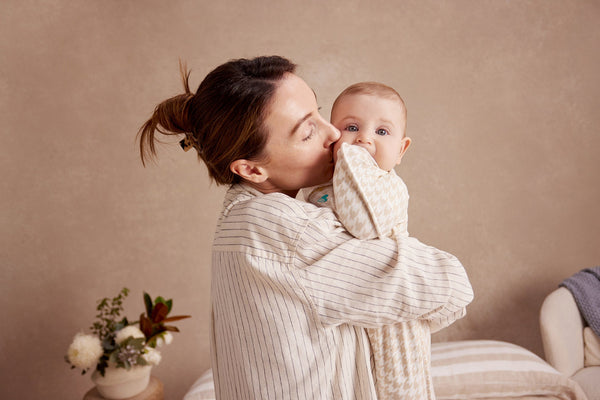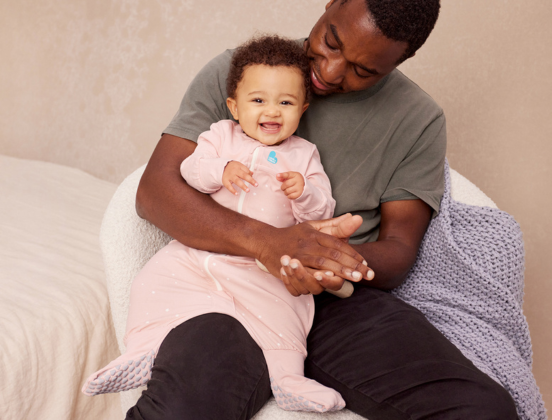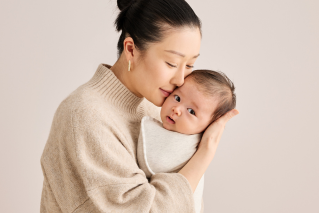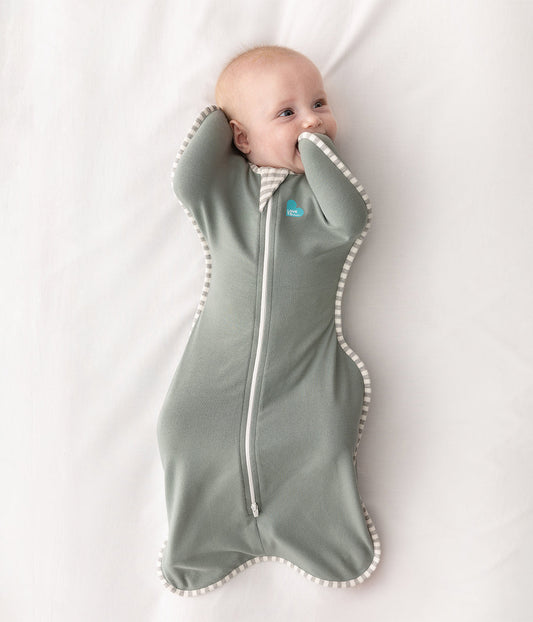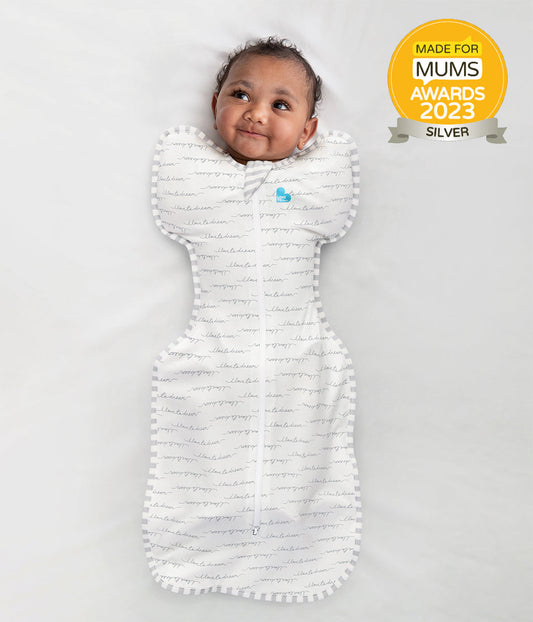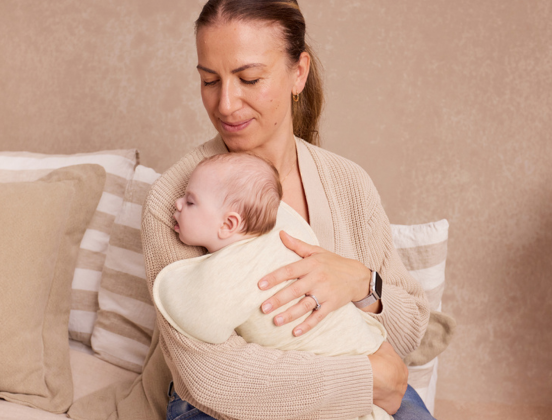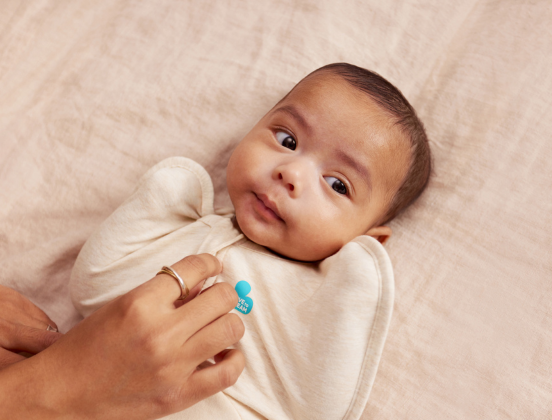Your baby’s appearance during newborn week
During your baby’s first weeks of life on earth, their physical appearance might change in a number of ways:
- Baby’s head: Particularly if your baby was born via vaginal birth, their head may appear cone-shaped. Don’t be alarmed if there is some misshaping due to forceps, or vacuum-assisted birth (your baby’s head has been through quite an affair). Within the first few days, the shape of your baby’s head should settle into their natural shape.
- Umbilical cord: For around 10 days your baby’s umbilical cord will gradually become dry, turn black and fall off. Keep the area clean and dry and let your GP or child health nurse know if you notice any redness or stickiness.
- Swelling: After birth it’s common for babies to have some swelling around the face, eyes and genitals. This should go away within the first week.
- Birthmarks: Birthmarks on babies are common and generally not a cause for concern. If you have concerns, raise them with your GP or child health nurse.
Feeding your newborn in the first few weeks
In the first few days and weeks, feeding will be frequent. Babies’ tummies are small and can become full easily, but it won’t be long until they need their next top-up. Typically, newborn babies feed every 2-3 hours and have around 8-12 feeds within a 24-hour period.
During newborn first week, feeding times often aren’t as succinct as the averages. Ask for help if you’re unsure and follow your baby’s cues for feeding. When your baby is hungry they will most likely provide you with signals, such as moving their tongue, forming a sucking action with their mouth or simply being more alert.
If your baby is underweight or suffering from jaundice they may require more frequent feeds.
Sleeping patterns
Newborns sleep in short periods and they don’t know the difference between day and night. A typical newborn sleep cycle is around 40 minutes, after which they will wake looking to be fed or changed. Newborn babies spend a great deal of time sleeping, normally between 14-17 hours per day.
Newborn sleep cycles consist of different levels of sleep and each cycle contains both phases:
- Active sleep where your baby may move around, make noises and is easily woken
- Quiet sleep is more settled with steady, deeper breathing.
The first few weeks of baby development
Your baby is doing a lot of development during the first weeks. They are getting to know you, their environment and how the world works. They are making associations with people, sights, sounds and their surroundings.
A newborn’s growing brain is processing a lot of information, and the frequency of their sleeping and feeding pattern is helping them develop rapidly, both physically and mentally. Within the first week, your baby may learn to focus on objects around 20-30cm away and may be able to briefly lift their head when placed on their tummy.
Bonding with your newborn
Bonding with your baby starts the moment they arrive and is a critical part of their development. From cuddles and skin-to-skin contact, to reading or singing, bonding will help your baby feel safe, assist them with learning and give them a sense of wellbeing.
There are number of important ways you can bond in the first days with newborn:
- Cuddles
- Skin to skin contact
- Making baby feel secure by swaddling them or wrapping them
- Responding to their crying
- Talking and singing to your baby
- Making eye contact and using facial expressions
Bath time
Bathing your tiny infant can be both beautiful and terrifying. But if you set yourself up with all the tools you need in advance, there’s no need to be nervous about this task. A bath can be an important bonding experience and help your little one to relax.
Lay a towel out ready, perhaps a plastic cup for rinsing small amounts of water over your baby’s body, and if you want to use a gentle wash or flannel, have them nearby and ready to go. Baby baths don’t tend to take too long, after a simple wash and a little relax, wrap your baby in the waiting towel and carry on with dressing.
Bath supports are very useful for full-sized baths and can help you manage holding and washing your baby at the same time.
Common health concerns with your baby in their first few weeks
It can be unsettling when you notice your baby has a health concern within the first few weeks. A few common concerns are explained below.
Weight loss
It’s very common for babies to lose between 7-10% of their body weight within days of being born. Typically, newborns regain this weight within the first two weeks after a milk supply has been established and they have settled into feeding. If you have concerns you should reach out to your child health nurse or GP.
Sticky eye
Babies occasionally develop sticky eyes with a yellow or white discharge, due to narrow or blocked tear ducts. This condition usually clears up by itself. Your GP or child health nurse can show you how to gently cleanse and/or massage your baby’s tear ducts to help unblock them.
Crying in the first weeks of life
Crying is your baby’s way of communicating in their new world. Responding to your baby’s cry will let them know you’re there and help develop the bond between you. You may not always know what the problem is, but it’s a good rule of thumb to start with the basics. Infant crying is often related to hunger, tiredness or needing a change. You will develop a way of interpreting your baby’s crying over time.
Baby health check-ups
Baby health check-ups are an important part of the first few weeks of your baby’s life. General checks ensure your baby is feeding and developing well. Making time for health check-ups are a good preventative measure, to help identify any issues with your baby’s first few weeks of development and provide you with any extra support you need.

